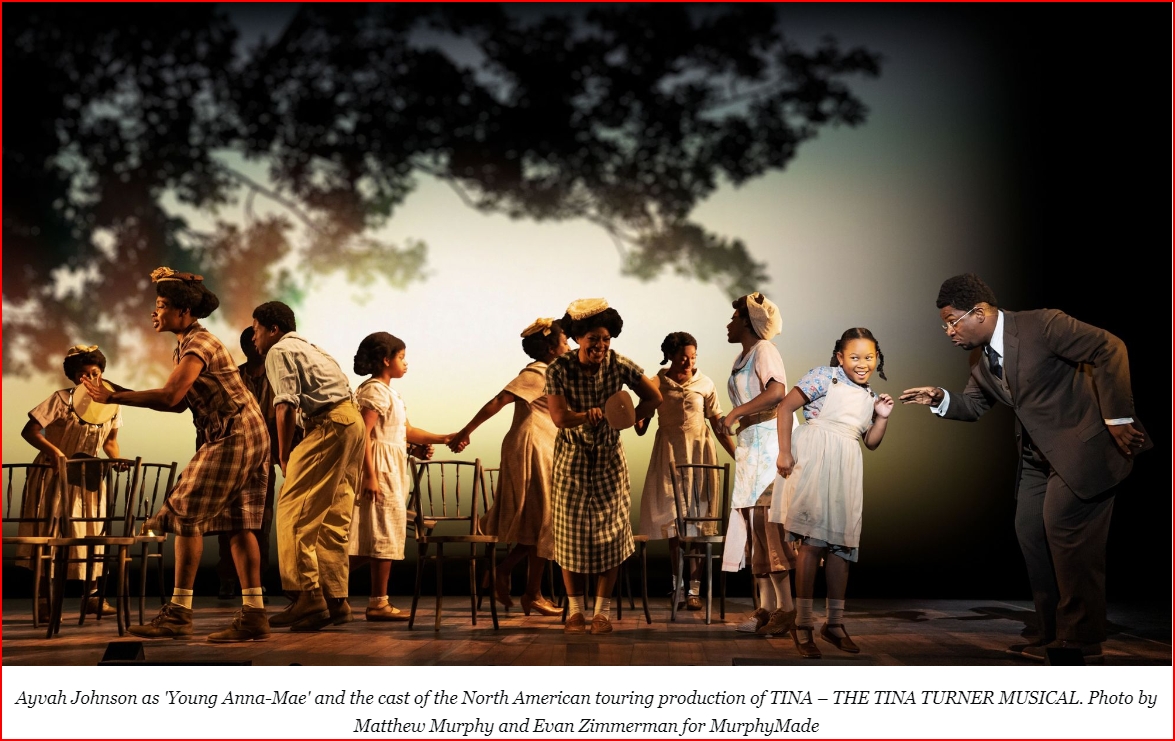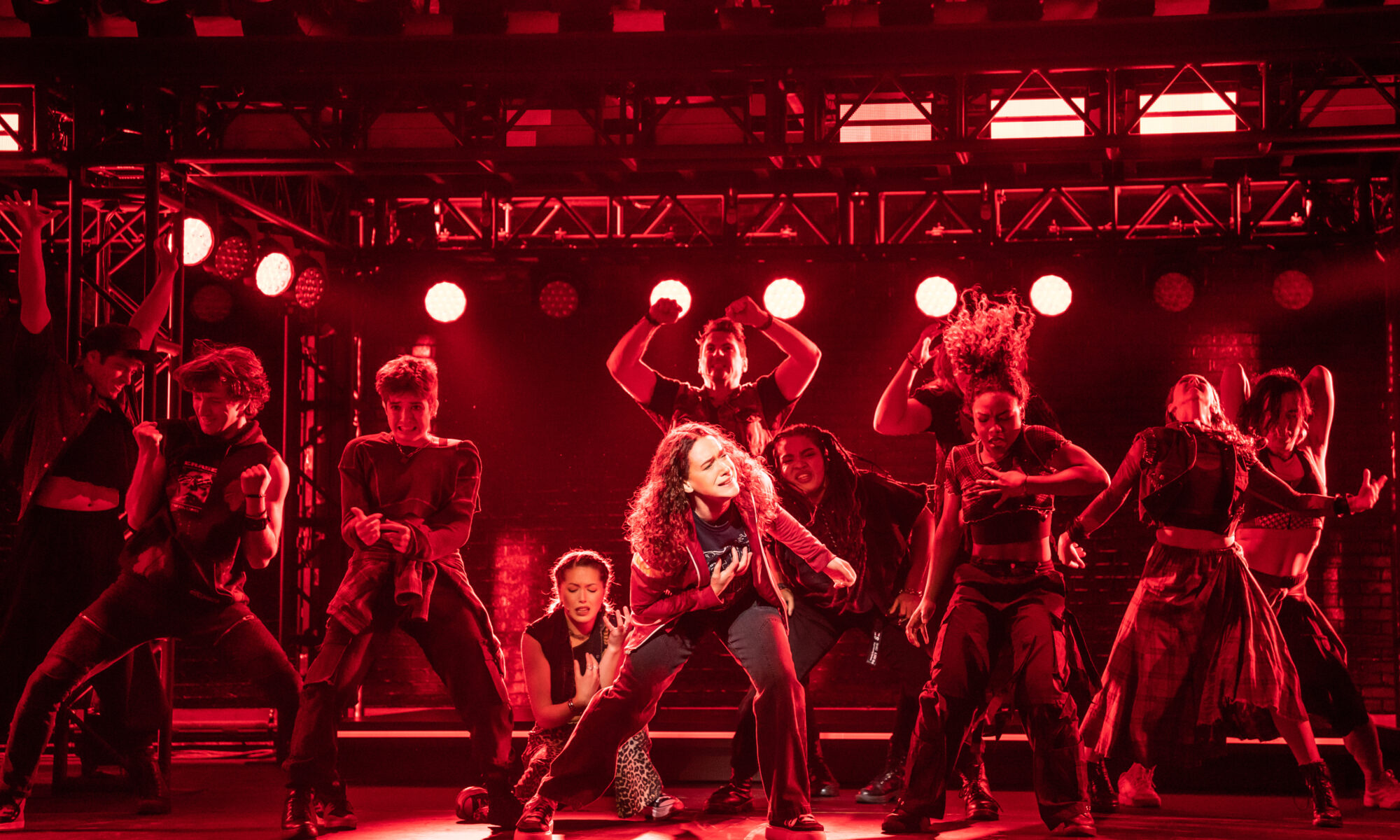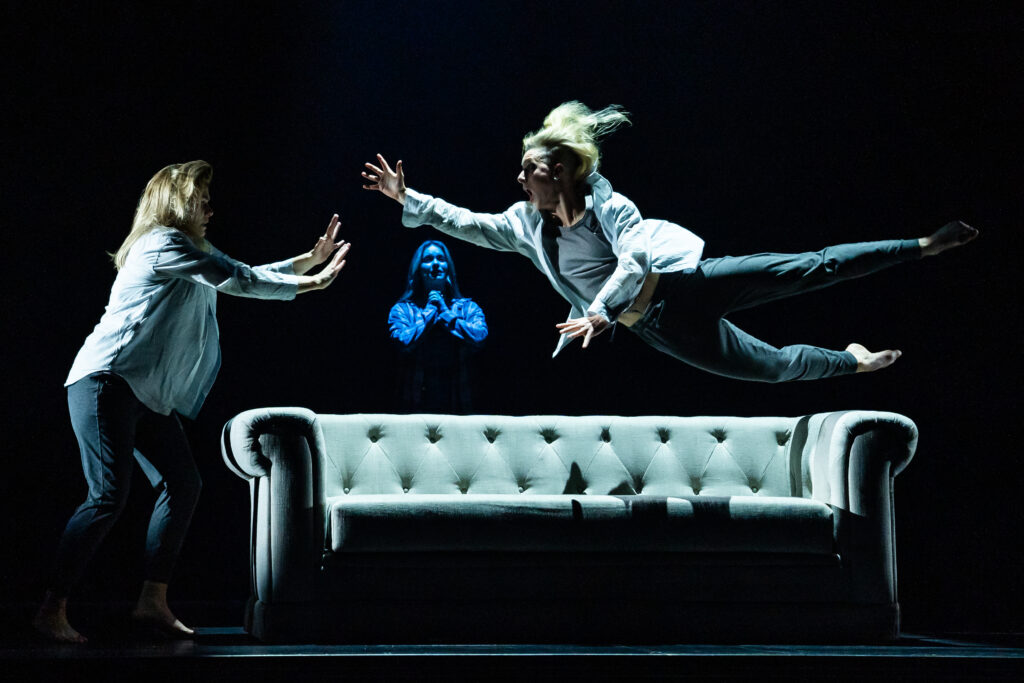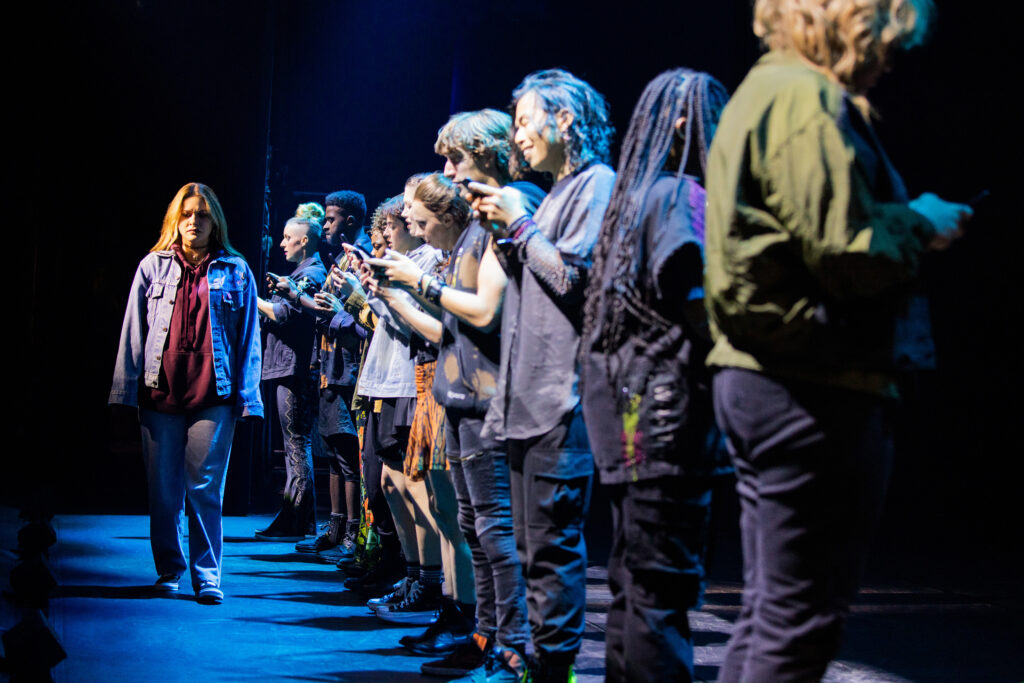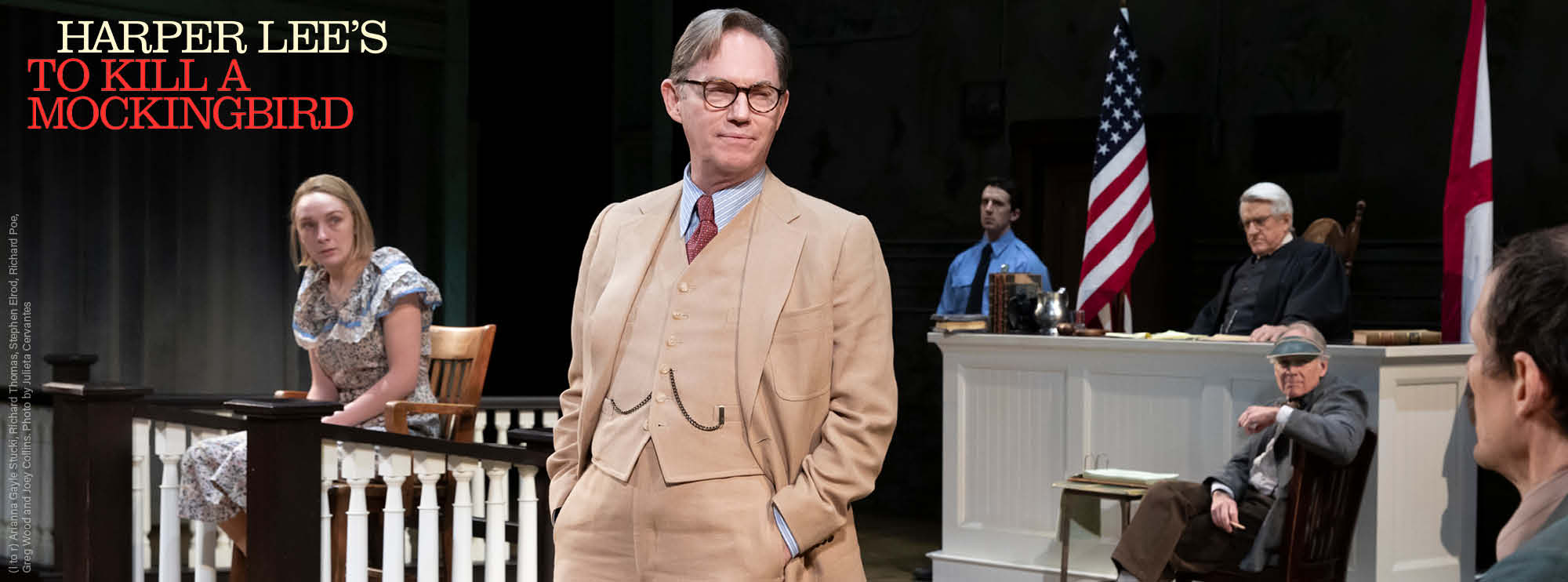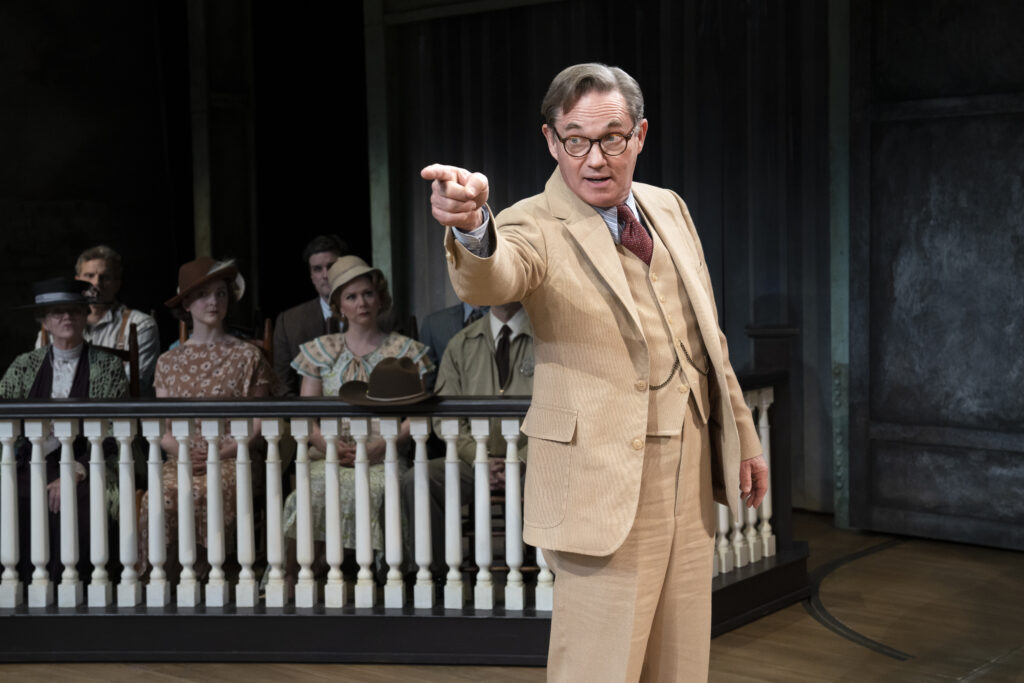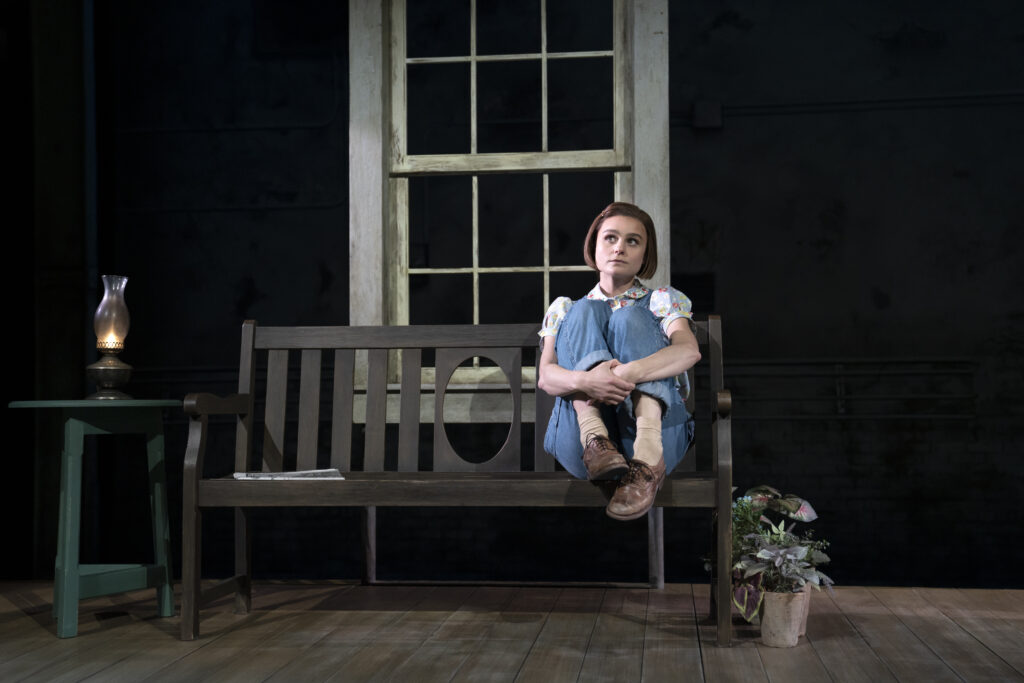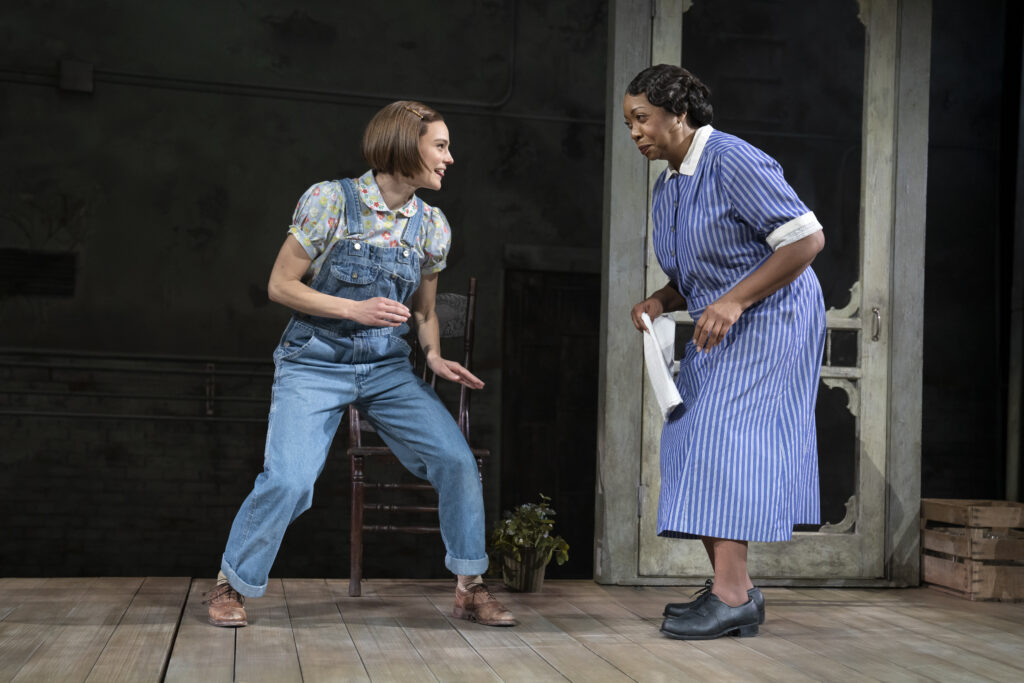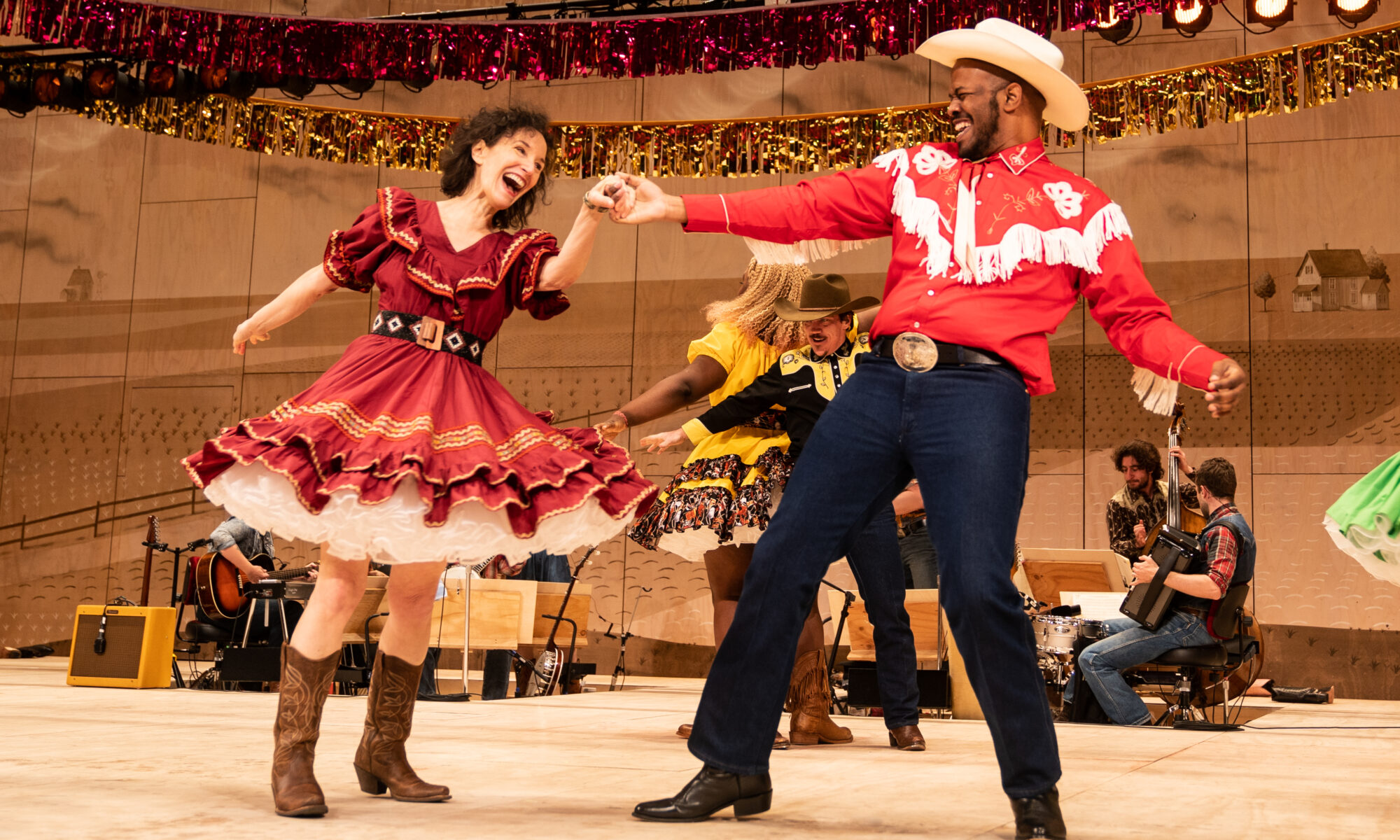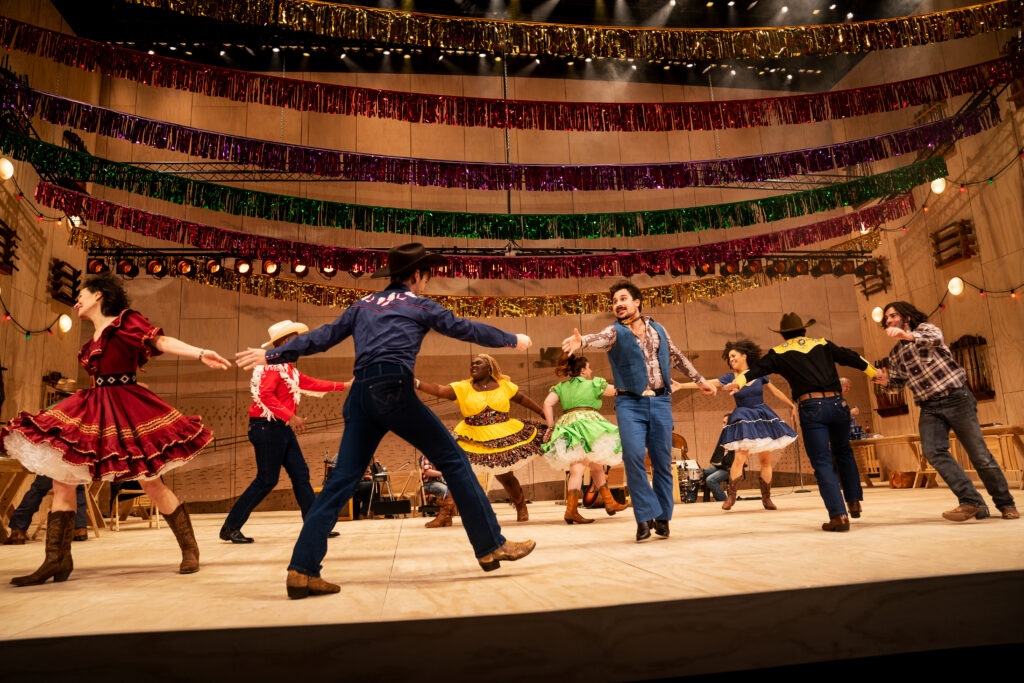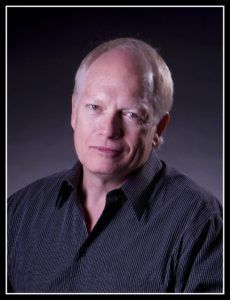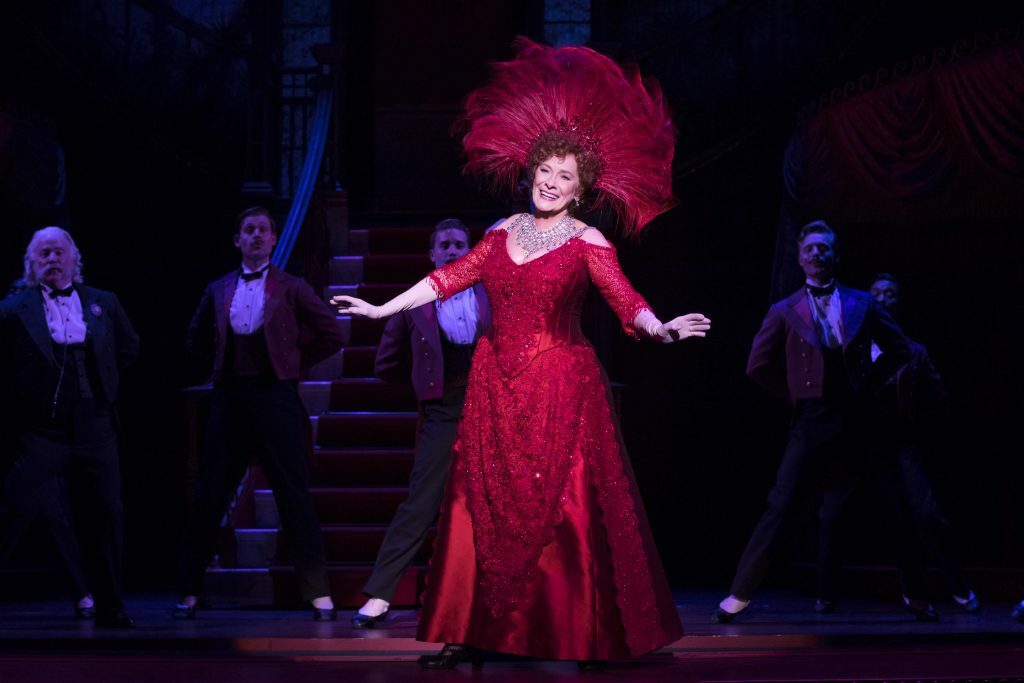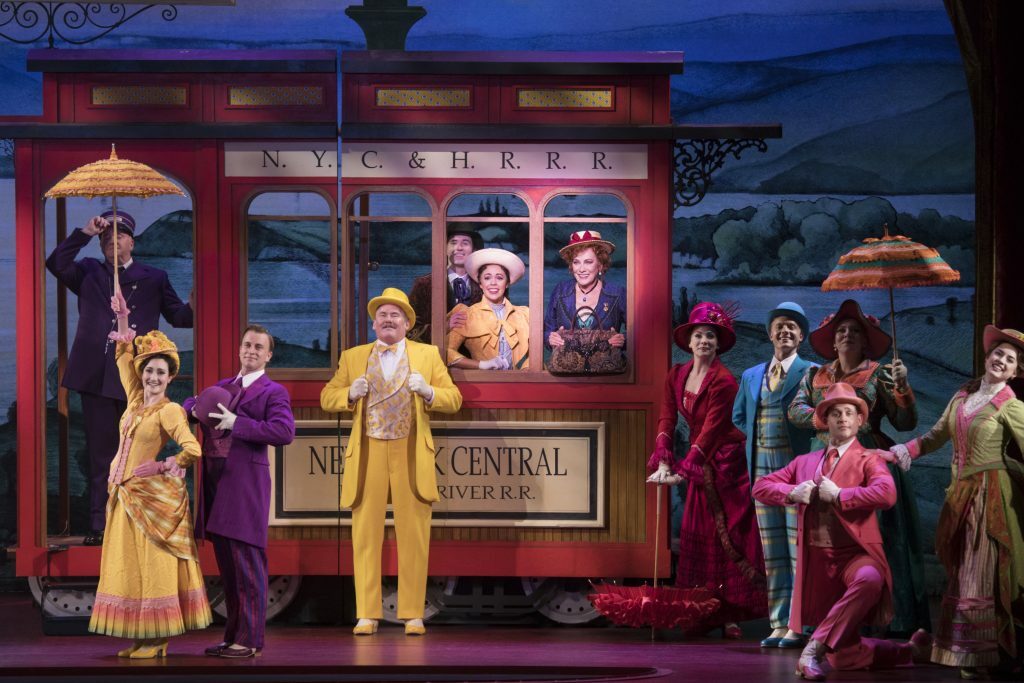By George Maguire and Barry Willis
“Queen of Rock’n’Roll” is a title that’s been bestowed on several performers—Stevie Nicks and Joan Jett among them. None are more deserving than Tina Turner, who passed away in May 2023. She was a major force during several decades as a pop music icon.
Tina – The Tina Turner Musical gloriously brings her music and life to San Francisco’s Golden Gate Theater through August 27. The production moves to Broadway San Jose August 29 – Sept. 3.
…One of this year’s most important national touring productions…
Both a staged equivalent of a “biopic” (a filmed biography) and a “jukebox musical,” The Tina Turner Musical tells the tale of her origin in the small town of Nutbush, TN, to her eventual marriage to musician Ike Turner, and her re-emergence as a solo superstar after their breakup.
At nearly three high-intensity hours, the production is so demanding that it requires two performers in the lead role, alternating performances so that each can have a full rest day before the next one. Zurin Villanueva starred in the Wednesday Aug. 2 opener, with Naomi Rodgers taking the lead on alternate dates. Rodgers is presumably Villanueva’s equal in a huge, sumptuous production directed by Phyllida Lloyd.

With the lanky physique and endurance of a distance runner, Villanueva tears into the drama and music with power and conviction. Just when you think she can’t possibly top herself as the eponymous lead, she opens her throat and brings Tina Turner straight to the heart. The Golden Gate’s near-capacity crowd couldn’t get enough.

The show is all about Tina, of course, but it’s marvelously fleshed out by many other superb talents. High praise to Roderick Lawrence who manages to find humanity in the troubled life of Ike Turner, a talented, charming manipulator who abused Tina so hard and so often that she ultimately made a desperate dash across a busy freeway to throw herself on the mercy of a motel clerk who provided her a room, food, medical care, and an armed guard at her door. That true event is a pivotal scene in the film What’s Love Got to Do with It? and the closing scene in the musical’s first act.
A compelling musician, Lawrence’s vocals are pretty damned good too, but he doesn’t quite measure up to Gerard M. Williams as Tina’s lovelorn bandmate Raymond, whose gorgeous rendition of “Let’s Stay Together” exceeds by many degrees the original by Al Green. Roz White stars as Zelma, Tina’s disdainful mother who sends her daughter away to live with her grandma. There’s no evidence of a father figure in the depiction of Tina’s early life, a circumstance all too prevalent among adult women who subjugate themselves to abusive men. White has only one moment to sing in this show, but her contralto is wonderful.
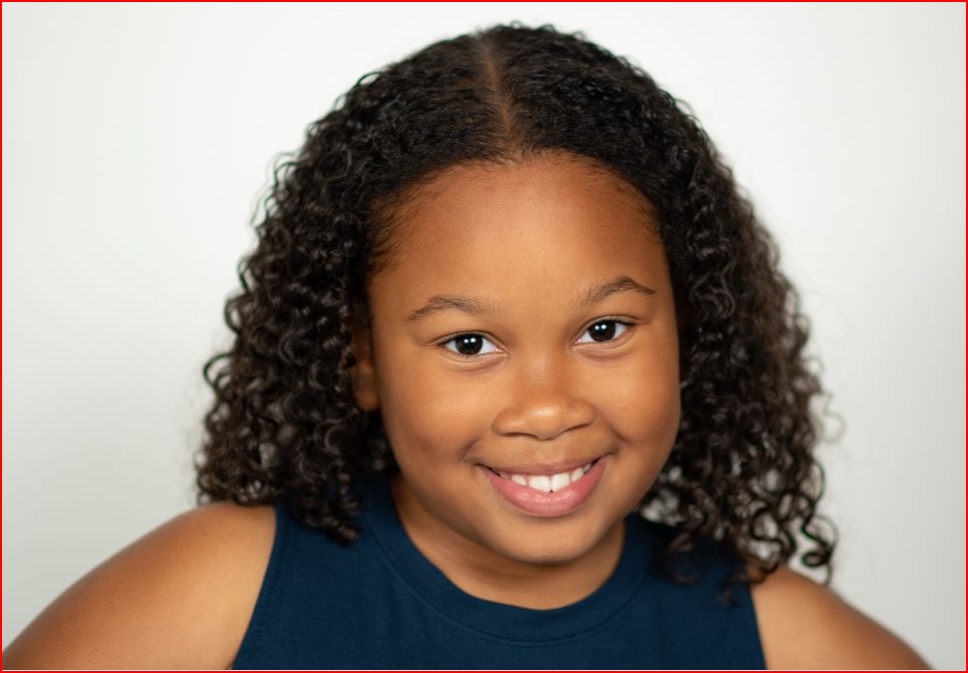
The real emerging superstar in this production is child performer Ayvah Johnson, who captivates the audience as young Anna-Mae (Tina’s birth name), first as a very enthusiastic member of her gospel-singing church, and appearing intermittently throughout the show to remind us where Tina Turner came from. Johnson is clearly a crowd favorite. The Ikettes, the big backstage band, and the show’s stagecraft are all superb. While engaging, we found that the new music by Nicholas Skilbeck just doesn’t compare favorably with the Turner songbook.
Jeff Sugg’s projection design is a force of its own. Act Two is like a psychedelic trip accentuating and building each song with magic, greatly enhanced by Bruno Poet’s lighting design.
Although the adequate book glosses over details, it provides highlights of her life, reminding us that her biggest personal and professional successes happened well after she turned 40. More than a juke-box musical, this is a superbly conveyed story of triumph and tragedy, blazing the life of icon Tina Turner to the back of the capacious Golden Gate. This inspiring, uplifting tale is beautifully rendered.
One of this year’s most important national touring productions, Tina – The Tina Turner Musical is an absolute must-see.
-30-
 ASR Contributing Writer George Maguire is a San Francisco-based actor/director and is Professor Emeritus of Solano College Theatre. He is a voting member of the SF Bay Area Theatre Critics Circle. Contact: gmaguire1204@yahoo.com
ASR Contributing Writer George Maguire is a San Francisco-based actor/director and is Professor Emeritus of Solano College Theatre. He is a voting member of the SF Bay Area Theatre Critics Circle. Contact: gmaguire1204@yahoo.com
 ASR NorCal Executive Editor Barry Willis is a member of the American Theatre Critics Association and president of the SF Bay Area Theatre Critics Circle. Contact: barry.m.willis@gmail.com
ASR NorCal Executive Editor Barry Willis is a member of the American Theatre Critics Association and president of the SF Bay Area Theatre Critics Circle. Contact: barry.m.willis@gmail.com
| Production | Tina – The Tina Turner Musical |
|---|---|
| Written by | Katori Hall, Frank Ketelaar and Kees Prins |
| Directed by | Phyllida Lloyd |
| Producing Company | Golden Gate Theatre |
| Production Dates | SF: Thru Aug. 27, SJ: Aug. 29 – Sept. 3 |
| Production Address | Golden Gate Theatre 1 Taylor Street San Francisco, CA ... Broadway San Jose (Aug 29 – Sept. 3) Center for the Performing Arts 255 S. Almaden Blvd. San Jose, CA 94102 |
| Website | www.broadwaysf.com |
| Telephone | (888) 746-1799 |
| Tickets | $66.50 – $179.50 |
| Reviewer Score | Max in each category is 5/5 |
| Overall | 4.5/5 |
| Performance | 4.5/5 |
| Script | 4.5/5 |
| Stagecraft | 4.5/5 |
| Aisle Seat Review PICK? | YES! |

